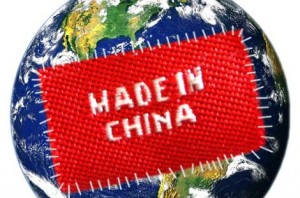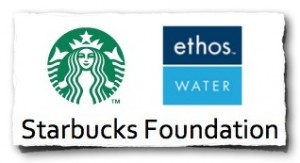After reading Ten Reasons Small Businesses Fail to Grow on the New York Time’s Business Day blog. I would like to expand on point #5 which states that small businesses fail to grow due to a lack of technology. Information technology is a big part 0f almost all businesses now days, whether we like it or not. Even if technology is being used by a business it may not be made of use in the most profitable way. Survey results presented to our Comm 101 class found that less than 8% of an IT budget on initiative creates value for the entreprise. To get the most out of technology businesses must first understand the requirements of their markets. Once these are identified a strategy can be developed. Businesses must be able to use technology to get the most accurate update results to gain profit for their business. Technology should be used in a way where information is gathered and shared. If it is so straight ofrward though, where do businesses go wrong? Why do companies like Kodak flunk when technology is put into play? What do you think is the number one mistake small businesses make with technology?
Life Assurer Goes Direct
 Old Mutual, the largest life assurance company in South Africa recently announced it’s plans to go direct with a limited selection of products according this Business Times article. This move would activate the double margin effect by eliminating a broker or agent middle man and having the customer purchase their plan direct from the company via phone or the web. Their are many advantages for Old Mutual when it comes to going direct. A big advantage is customization. When the company deals directly with consumers they are better able to tailor their products to the customer’s exact needs. This is especially important given that Old Mutual operates in the market of wealth management plans. Other benefits for the company include lower costs, better consumer information and better transaction management.
Old Mutual, the largest life assurance company in South Africa recently announced it’s plans to go direct with a limited selection of products according this Business Times article. This move would activate the double margin effect by eliminating a broker or agent middle man and having the customer purchase their plan direct from the company via phone or the web. Their are many advantages for Old Mutual when it comes to going direct. A big advantage is customization. When the company deals directly with consumers they are better able to tailor their products to the customer’s exact needs. This is especially important given that Old Mutual operates in the market of wealth management plans. Other benefits for the company include lower costs, better consumer information and better transaction management.
Going direct isn’t all good news. Old Mutual laid off over 10,000 brokers and agents who are no longer needed do do their jobs. So although going direct may prove to be beneficial for Old Mutual, every silver lining does indeed have a cloud. Do you think going direct is the best plan for Old Mutual? Do the benefits really outweigh those of a traditional broker/agent system?
In response to fellow Comm 101 classmate Wil Fred Loh’s blog post China’s Impact on the Global Economy I concur that the major economic slow down in China is something to be concerned about. Given that China plays a key role in the supply chain for many multinational companies this decreasing growth rate has potential to severely harm the global economy in the short term. However I do not think China’s economic problems will cause any lasting harm for the economies in other countries. China’s role as a main producer of goods can be easily replaced by a number of countries with more promising growth rates and economic standings. In the mean time, China’s economy will continue to suffer but ahould pick up by next year with GDP predicted to be up above 8% by 2013*. Perhaps the country will ride out this hard time and reenter the global market stronger than ever, just maybe with a few more competitors.

*Statistic from: http://www.theglobeandmail.com/globe-investor/as-chinas-growth-slows-north-american-markets-take-a-hit/article4597008/
 While reading the Economist online I stumbled upon Gulliver’s Business Travel Blog and found an interesting post titled Business lounges in service stations: Petrol, chocolate and a sales meeting. It explores the business idea of multinational company Regus PLC (which provides serviced meetings areas/conference rooms/office space to business travellers worldwide) to set up business lounges in gas stations throughout the U.K. and France. While this is certainly an innovative idea for the company Gulliver questions the practicality of these “third place working environments”.
While reading the Economist online I stumbled upon Gulliver’s Business Travel Blog and found an interesting post titled Business lounges in service stations: Petrol, chocolate and a sales meeting. It explores the business idea of multinational company Regus PLC (which provides serviced meetings areas/conference rooms/office space to business travellers worldwide) to set up business lounges in gas stations throughout the U.K. and France. While this is certainly an innovative idea for the company Gulliver questions the practicality of these “third place working environments”.
As a student yet to enter the workforce it is hard for me to give an educated opinion on this topic, but based on what I have observed in the business world I feel that these lounges would be a good idea. Given the high percentage of business people who commute in these cities everyday for work purposes I believe Regus has simply found a better way to zero in on their target market through strategies suc ha psychographic segmentation. Given the lack of external competition and the high demand for work space from consumers I believe that this will be a successful endeavour for Regus PLC.
The Sad State of Business Ethics
 After reading the blog post “Business-As-Usual” in Mexico? by fellow Comm 101 student Joey Luo my attention was drawn to the startlingly poor state of business ethics used within major corporations (such as Luo’s example of Walmart Mexico), particularly in underdeveloped countries. I disagree with Luo’s claims in this post that “it may be the way things are done in Mexico” and that the corporation should “consider ethical relativism.”
After reading the blog post “Business-As-Usual” in Mexico? by fellow Comm 101 student Joey Luo my attention was drawn to the startlingly poor state of business ethics used within major corporations (such as Luo’s example of Walmart Mexico), particularly in underdeveloped countries. I disagree with Luo’s claims in this post that “it may be the way things are done in Mexico” and that the corporation should “consider ethical relativism.”
In my opinion ethics and morals for a company should be a universal part of it’s brand identity and not be dependent on geographical location and cultural norms. Behaviours such as bribery, unfair treatment of employees and breaking the law are inexcusable and should not be tolerated by such major companies, much less swept under the rug as it appears Walmart Mexico tried to do with this latest scandal. Luo’s blog post made me realize how easy it is for these corporations to engage in unethical business practices abroad. There needs to be a call for action here. If the corporations won’t hold their own employees accountable for their morally wrong actions, who will?
 Recently I stopped by a local Starbucks on my way to class. On top of feeding my caffeine craving I also decided to pick up a bottle of water upon realizing I had left my own back in my dorm room. After paying and cracking open my bottle I read the packaging. The company, Ethos Water, claims to be on a mission to provide clean drinking water to children who do not have access to it. This made me question, is Ethos really the social entreprise it claims to be or is this just a clever marketing ploy?
Recently I stopped by a local Starbucks on my way to class. On top of feeding my caffeine craving I also decided to pick up a bottle of water upon realizing I had left my own back in my dorm room. After paying and cracking open my bottle I read the packaging. The company, Ethos Water, claims to be on a mission to provide clean drinking water to children who do not have access to it. This made me question, is Ethos really the social entreprise it claims to be or is this just a clever marketing ploy?
Upon further investigation I realized that although Ethos indeed partners with the Starbucks Foundation and has provided more than $6 million dollars for water sanitation and hygiene programs this is a very small percentage of what the company could be doing. The company donates $0.05 from every bottle towards its charitable endeavours. Considering each 700ml bottle retail for close to $2.00 this is a puny percentage.
 The main focus of Ethos is still to maximize profit for the company, while tugging at the heartstrings of consumers by donating a minimal amount to charity. My suggestion? If you are concerned about the lack of access to potable water for children bring your own bottle of water next time and donate that $2.00 directly to the charity.
The main focus of Ethos is still to maximize profit for the company, while tugging at the heartstrings of consumers by donating a minimal amount to charity. My suggestion? If you are concerned about the lack of access to potable water for children bring your own bottle of water next time and donate that $2.00 directly to the charity.
 It was recently announced by newly appointed creative director of fashion house Yves Saint Laurent Hedi Slimane that he plans to change the company’s name from Yves Saint Laurent to Saint Laurent Paris. This major change to an iconic brand name has critics questioning Slimane’s motive. Although many are quick to speculate fashion/political reasons for this change to the name, it may be as simple as Mr. Slimane is zeroing in on and targeting his consumer audience. Although Saint Laurent Paris remains a high end couture brand name of apparel recently their products have been promoted by more lower level celebrities for example; reality television star Lauren Conrad. Their clothing is also routinely featured in publications such as US Weekly which targets a younger, lower income demographic of women than a magazine such as Vogue, which features competitor brands such as Chanel or Celine. The addition the location of the brand name’s flagship store would offer a sense of brand identity to
It was recently announced by newly appointed creative director of fashion house Yves Saint Laurent Hedi Slimane that he plans to change the company’s name from Yves Saint Laurent to Saint Laurent Paris. This major change to an iconic brand name has critics questioning Slimane’s motive. Although many are quick to speculate fashion/political reasons for this change to the name, it may be as simple as Mr. Slimane is zeroing in on and targeting his consumer audience. Although Saint Laurent Paris remains a high end couture brand name of apparel recently their products have been promoted by more lower level celebrities for example; reality television star Lauren Conrad. Their clothing is also routinely featured in publications such as US Weekly which targets a younger, lower income demographic of women than a magazine such as Vogue, which features competitor brands such as Chanel or Celine. The addition the location of the brand name’s flagship store would offer a sense of brand identity to  consumers less familiar with haute couture clothing lines. This change in addition to the ultra causal Spring/Summer collection debuted by Slimane at Paris Fashion Week suggests that he is making this drastic change for more marketing reasons than brand aesthetics. Read more here.
consumers less familiar with haute couture clothing lines. This change in addition to the ultra causal Spring/Summer collection debuted by Slimane at Paris Fashion Week suggests that he is making this drastic change for more marketing reasons than brand aesthetics. Read more here.
Pepsi Tries to Shift Brand Identity

In the world of soft drinks it can be stated that the fiercest rivalry is between Pepsi Co. and Coca Cola. The point of parity between these two soda giants is that they both produce brown, carbonated, sweetened beverages, though most cola die hards will swear differ completely taste wise (although the rest of us may not be so convinced). It is no secret however, that Pepsi Co. has been lagging far behind Coca Cola in respect to points of difference for the company.
Over the last century Coca Cola has set itself apart by marketing their soda as a quintessential All-American staple, pushing the sales and popularity of Coke far ahead of those of Pepsi. However Pepsi Co. looks to get back in the race with their most recent ad campaign.
The marketing team for Pepsi Co. has produced the #NOW campaign, which looks to create a younger, fresher identity for their product. This is achieved through the use of social media (hashtags on Twitter), celebrity endorsement (i.e. Nicki Minaj) and the featuring of trendy, young people consuming Pepsi products. This attempt to redevelop a “second place brand” which has never really had a specific brand identity may be enough to finally put Pepsi Co. on par with Coca Cola when it comes to popularity. Only time will tell. Meanwhile check out the #NOW commercial here.
 According to this Globe and Mail article by David Parkinson, many major tech companies such as Microsoft, Apple and S&P have either introduced or substantially increased their dividends (money payed by the company to their shareholders via cheque) over the last few years.
According to this Globe and Mail article by David Parkinson, many major tech companies such as Microsoft, Apple and S&P have either introduced or substantially increased their dividends (money payed by the company to their shareholders via cheque) over the last few years.
A sector once known for their high spending on marketing, research, product development, etc. to try to gain profit, most major companies seem to be profitable enough now to be able to dole out large dividends to their shareholders as they have never before. Looking at statistics, the technology sector’s dividend pay out rate has risen 1.5% in the last decade. This makes it almost on par with the average financial sector payout rate, a sector known for its high dividends.
But what does this change really mean?
As Parkinson suggests in his article, perhaps this marks the movement of technology shares from being higher risk “roller coaster” investments to being safer, dependable investments with good return rates. As today’s society seems to grow more and more dependant on all forms of technology, his reasoning is not unfounded. What do you think? Are tech companies shifting from higher risk to low risk investments?
 Philip Morris, the American tobacco company that produces popular brand names of cigarettes such as Marlboro, Players and Virginia Slims has had their moral standards called in to question by various international media outlets. The company was found to have forcefully extracted information from a University of Stirling study examining the effect cigarette marketing has on teenagers as young as thirteen years of age. The information that Philip Morris acquired contained over six thousand confidential interviews with teenagers concerning their attitudes about tobacco use.
Philip Morris, the American tobacco company that produces popular brand names of cigarettes such as Marlboro, Players and Virginia Slims has had their moral standards called in to question by various international media outlets. The company was found to have forcefully extracted information from a University of Stirling study examining the effect cigarette marketing has on teenagers as young as thirteen years of age. The information that Philip Morris acquired contained over six thousand confidential interviews with teenagers concerning their attitudes about tobacco use.
Although executives from Philip Morris maintain that they were well within their legal rights to access the information (citing Freedom of Information laws to win their case in courts), critics are calling their decision to pursue the information unethical, as the subjects polled and interviewed in the study were not made aware that the data could be accessed by outside parties. The main ethical issue with this case is that by forcing University of Stirling to give up confidential data in courts, Philip Morris is making the researchers betray the confidences of the thousands of study participants in the study in order to gain a competitive advantage for their firm.
Read the article here: